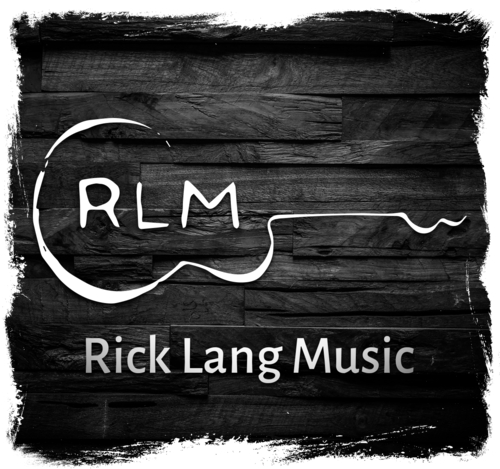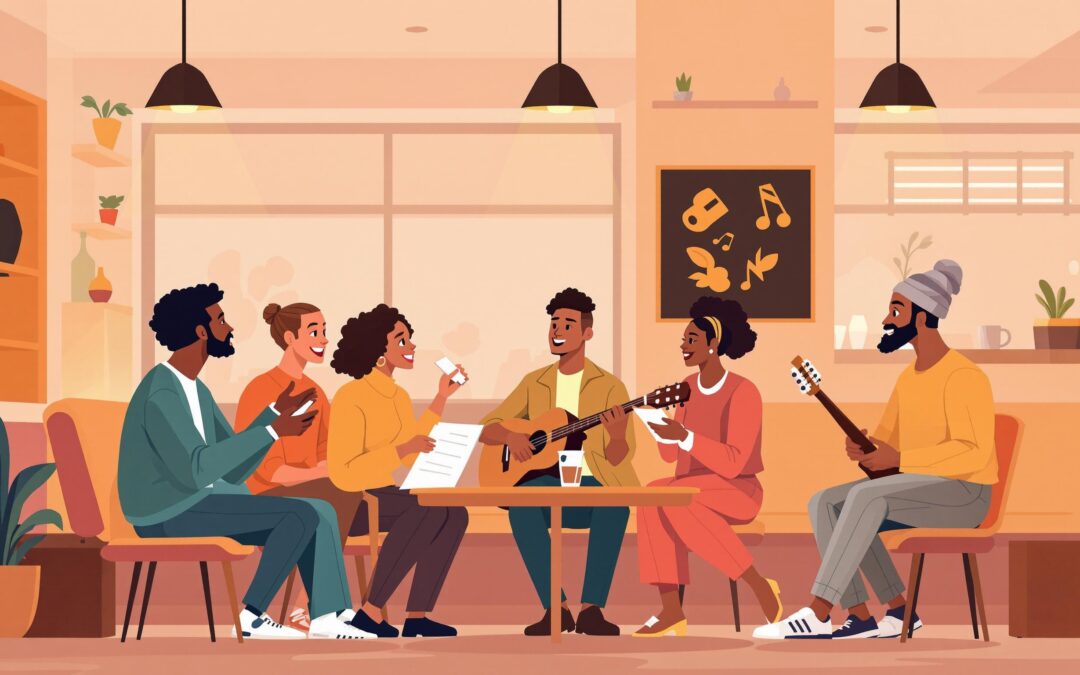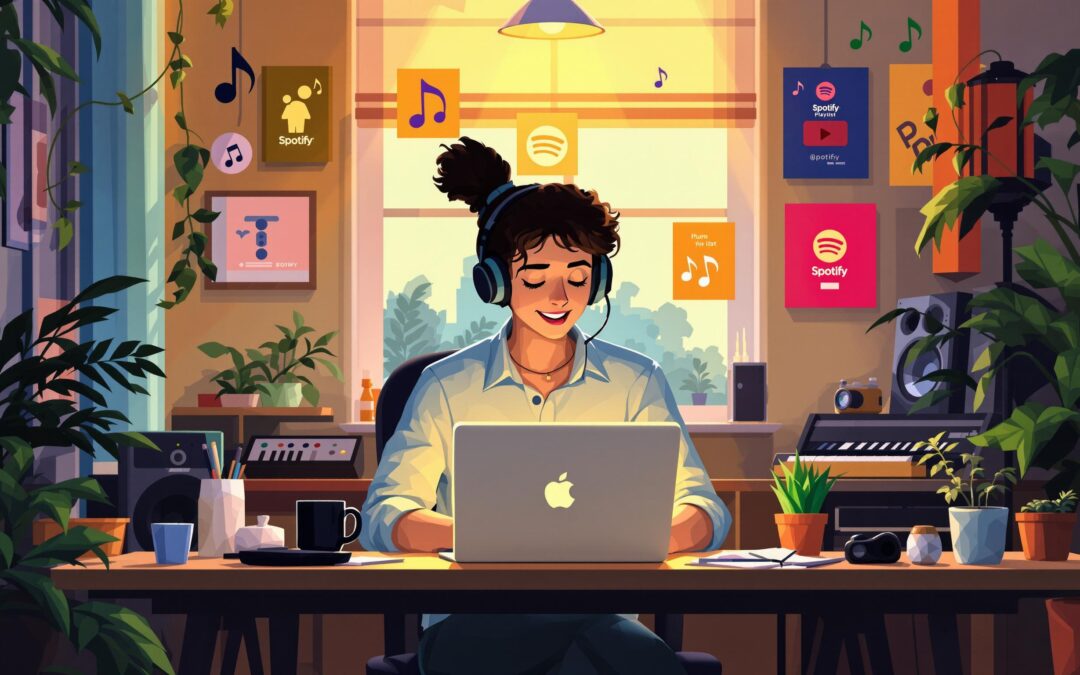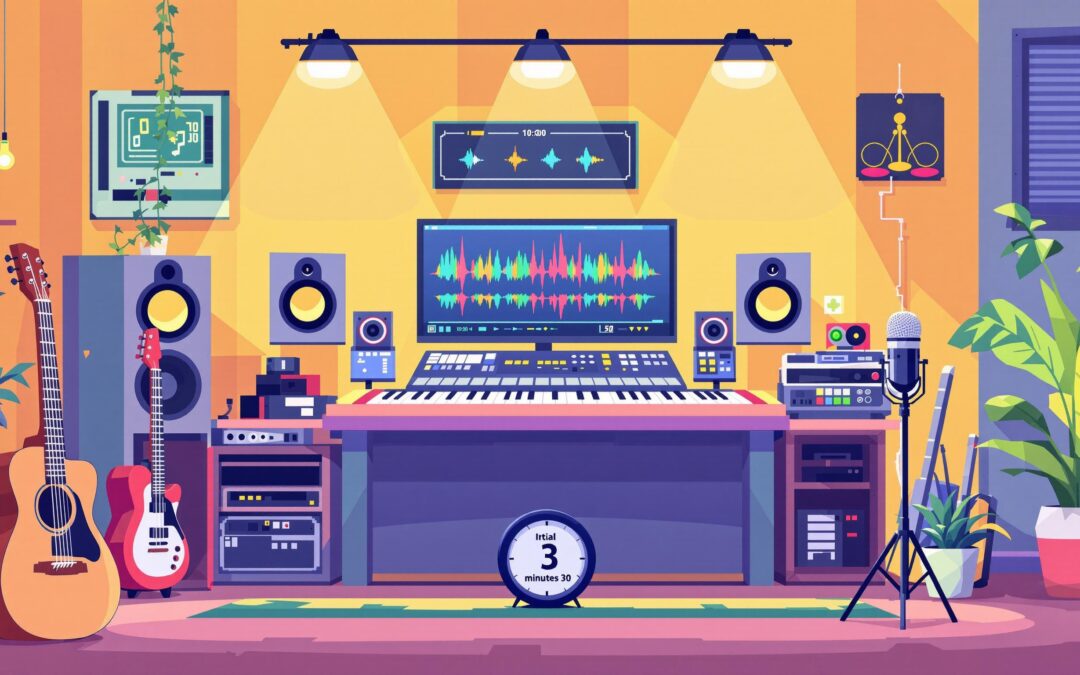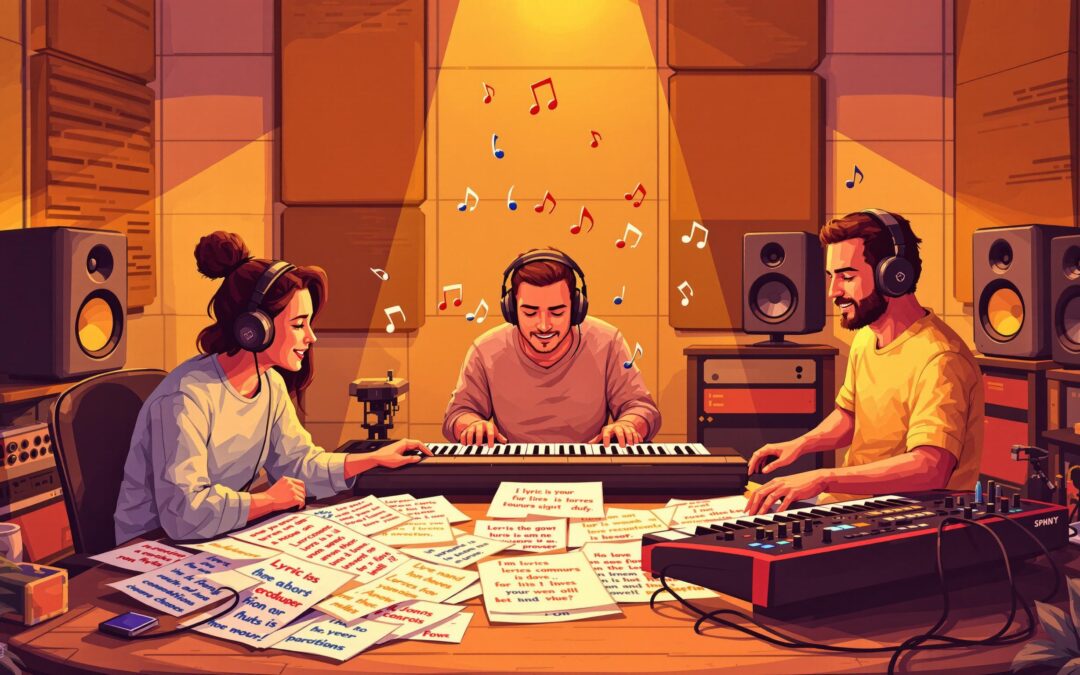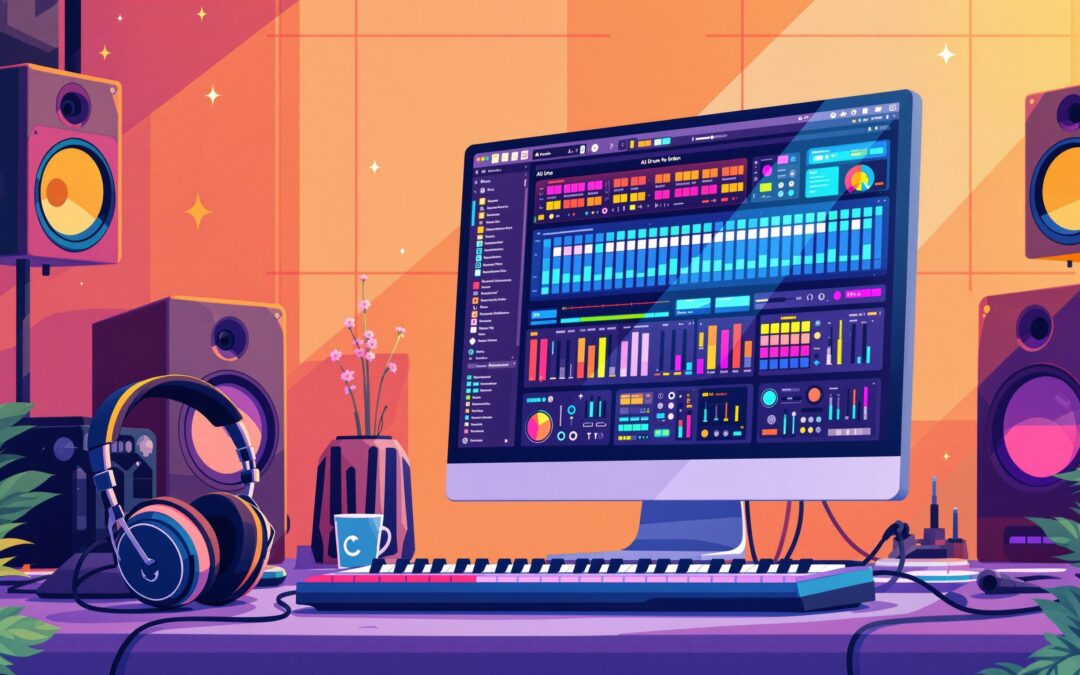Co-writing disputes can derail your songwriting partnerships. The key to avoiding them? Clear agreements, open communication, and proper documentation. Here’s a quick breakdown:
- Main Issues: Ownership, royalties, and creative differences.
- Impacts: Delayed projects, lost income, and strained relationships.
- Prevention Tips:
- Write detailed agreements (ownership, revenue splits, credits).
- Track all contributions (session logs, split sheets).
- Set communication rules (check-ins, feedback processes).
Create A Fair Co-Writer Agreement [In 2 Minutes!]
Main Sources of Co-Writing Conflicts
Creative disagreements often fuel conflicts in co-writing, especially when it comes to musical vision, lyrics, and production decisions. Let’s break down some common areas where these artistic clashes tend to arise:
-
Genre and Style Differences
Co-writers often come from diverse musical backgrounds, which can lead to disagreements over the direction or style of a project. These differences can slow progress and create tension. -
Lyrical Content Clashes
Themes, word choices, and storytelling approaches can vary widely between collaborators. If not addressed early, these differences can become major roadblocks. -
Production Disputes
Even when the overall vision aligns, conflicts can emerge over arrangements, recording techniques, or production styles.
To minimize these challenges, establish open communication from the start. Share your ideas, listen to your collaborator’s perspective, and aim for compromises that respect both artistic visions. A little flexibility can go a long way in keeping the creative process smooth.
sbb-itb-1c6af30
How to Prevent Co-Writing Disputes
Avoid co-writing disputes with proper planning and clear communication. Here’s how:
Writing Clear Agreements
Drafting detailed agreements can address potential conflicts before they arise. Key components to include:
- Ownership Structure: Specify each writer’s percentage share.
- Decision Rights: Clarify who has the final say on creative matters.
- Revenue Distribution: Define how income will be divided.
- Credit Attribution: Specify how credits will be assigned.
- Usage Rights: Outline terms for song usage and licensing.
- Dispute Resolution: Include a clear process for resolving conflicts.
Make sure the agreement is in writing and signed by all collaborators before starting the project. This helps avoid misunderstandings and disagreements later on.
Recording All Contributions
Keeping detailed records of everyone’s input can eliminate confusion about ownership and creative contributions. Here’s how:
- Maintain session logs to document each contributor’s role.
- Create split sheets with details like:
- Percentage breakdowns for song sections.
- Specific lyrical contributions.
- Melodic elements created by each writer.
- Save all versions of recordings and lyric drafts.
Using digital tools to track contributions ensures there’s a clear record of who contributed what, reducing the risk of disputes.
Setting Communication Rules
Establishing clear communication guidelines can streamline collaboration and reduce tension. Consider these steps:
- Schedule regular check-ins.
- Define how and when creative feedback will be shared.
- Set a decision-making process.
- Manage timelines with clear deadlines.
- Limit the number of revisions to avoid endless back-and-forth.
To make things easier, create a shared document with these rules and get everyone to agree to them. Here’s an example of how communication channels can be organized:
| Channel | Purpose | Response Time |
|---|---|---|
| Legal and business matters | Within 24 hours | |
| Text/Chat | Quick updates | Same day |
| Video Calls | Creative sessions | Weekly |
| In-person | Major decisions | As needed |
Steps to Fix Co-Writing Problems
Even with careful planning, disagreements can arise. Here’s how to handle conflicts while keeping the creative partnership intact.
Working with Mediators
Mediators help guide conversations, pinpoint key issues, and suggest neutral solutions. The process usually includes:
- Initial Assessment: Each person shares their perspective privately to identify the root of the problem.
- Joint Discussion: Both parties come together to discuss concerns and explore possible compromises.
- Resolution Planning: Create a clear plan that outlines responsibilities, deadlines, and follow-up actions.
If mediation doesn’t work, you might need to consider legal options.
When to Get Legal Help
When conflicts involve unclear contracts, rights disputes, or unauthorized use of work, it’s time to consult a music attorney. They can:
- Review contracts to clarify rights and responsibilities.
- Draft documents that clearly define ownership and usage terms.
- Help negotiate agreements that protect everyone’s interests.
Conclusion: Making Co-Writing Work
Key Takeaways
For co-writing to succeed, it’s crucial to establish clear communication and document important details like ownership splits, creative input, payment terms, and credit attribution. Here are the essentials for a strong co-writing partnership:
- Ownership and royalty agreements: Define who owns what and how royalties will be divided.
- Credit attribution: Clearly outline how credit will be assigned to everyone involved.
- Contribution tracking: Keep a record of each person’s creative input.
- Communication protocols: Set up structured ways to stay in touch and address issues.
By focusing on these aspects, you can create a smoother collaboration process.
Next Steps to Strengthen Your Partnership
Start by setting up a solid communication framework. Schedule regular check-ins to tackle issues early and keep the project on track. For online collaborations, explore tools that help track changes and contributions effectively. Platforms like Write.Record.Release. provide useful resources, including templates for collaboration agreements and remote songwriting guidelines.
A successful co-writing relationship is built on mutual respect and clear expectations. When everyone knows their role and responsibilities, you can focus fully on making great music. Take time to review and refine your co-writing practices regularly to ensure they remain effective and beneficial for all parties.

